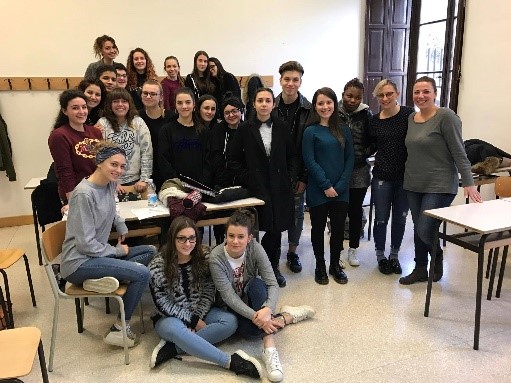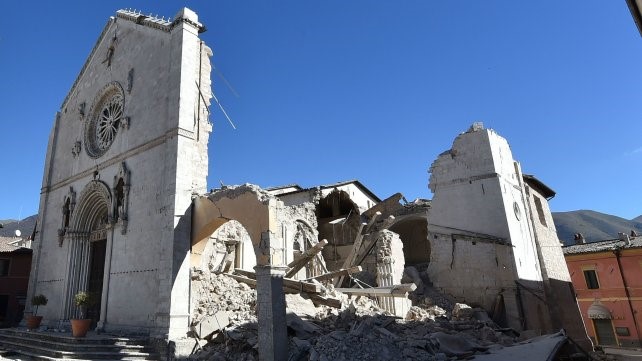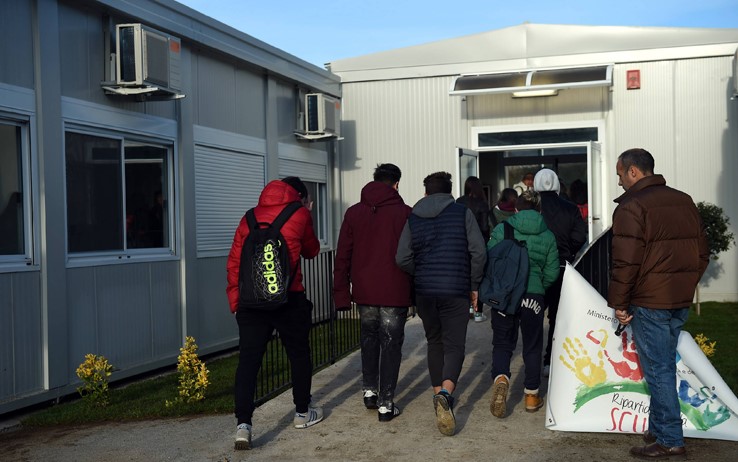Leonelle Pippi - 04.03.2017 13:11
Let's share and discuss opinions and information!
Leonelle Pippi - 04.03.2017 13:14
Education for integration
by Luisa Chiocchetti, Noemi Alessandrelli L., Josephine Ficola, LSP Assisi/Italy
On December 5th our class attended a meeting with two Caritas volunteers, Roberta and Chiara, who were there to share their experience with refugees hospitality. In particular we had the direct experience of Joy, a Nigerian refugee, who told us her story.
Roberta explained to us what happens when migrants land in Italy. At the beginning they are sent into hospitality centres in which they sign the hospitality pact to acknowledge the rules to live in a civil way. In these structures they aren't allowed to do any activities (working, volunteering, etc...) besides attending Italian lessons; this particular condition adds to the already stressful situation they have to go through even just to decide to leave their country. After four or five months they have a meeting with a territorial commission that establishes what these people need; Italian teachers help the refugees to prepare what they will say with the support of proofs which testify what they really had to face.
After this phase the problem is integration: they encounter many barriers like different food, lifestyle and mostly the language. This difficulty exists even for teachers, as Roberta told us, who have to deal with people of all ages, even adults, that speak different languages and have different levels of speaking.
Joy, the Nigerian girl, shared with us her school routine in her country and what she used to do in her free time. We realised that us young people behave in the same way despite different geographical, cultural and political situations. In fact, Joy said that she didn't like Maths and she used to go out with her friends with the excuse of studying with them, which is also what we do. Obviously there are some differences in the organisation of the school program and in some subjects, like Home Economics. They have six years of primary school and then six of secondary school and they have to buy their uniform. School transport is free but they have to pay rent.
Emigration is obviously an unstoppable phenomenon in front of which we cannot remain silent and the key to integration is education. In order for immigrants to have rights and duties and so be considered as what they are, which is human beings just like us, we don't have to simply take care of them by giving them clothes, food and a house but we have to provide them with education which helps them to be part of our society.

Lorenza Liguori - 10.03.2017 10:46
Education in spite of everything by Annalisa Genovese and Sofia Sorbelli, LSP Assisi/Italy

"Education is the most powerful weapon which you can use to change the world" said Nelson Mandela. Unfortunately it is not as widespread as it should be. Some countries in the South of the World, for example, are characterized by poverty and afflicted by war and famine and so deprived of conditions that can make an adequate educational system develop. However, even in places where you would not expect it, those necessary conditions can fail. The event that best testifies this and that the Umbrian population has experienced the most is the earthquake, whose strongest tremors occurred on August 24th, and on October 26th and 30th.
These tremors have been devastating not only for the population and its moral but also for houses and school buildings, which are therefore no longer able to provide adequate services. Between Umbria and Marche, in fact, more than 10,000 students no longer have classrooms and have instead been placed in tents and containers, or buildings along the Adriatic coast. However, even teachers suffer because of this instability, and they are forced to drive for lots of kilometres everyday on dangerous roads to keep on working. A question naturally arises: to stay or to leave in search of safer places and less extreme conditions? The answer seems obvious but actually, although some prefer to go away - at least temporarily - many more citizens are too tied to their place of origin to leave it. An example, as reported by local newspapers, is that of Federica Fede, a teacher of Pievebovigliana (Marche), who although she has moved to the Adriatic coast with her family, has decided that her children will continue to have their lessons in their old municipality, despite the long distance they have to travel every day, because of the affection she feels for her town. On the other hand, instead, there is someone who prefers to go away like Isidoro Testa. He, in fact, lived in Norcia (Umbria) with his family but later decided to move to Perugia, because his seventeen-year-old daughter was very scared of the earthquake. In conclusion, all this makes us understand how events are unpredictable and as we may unexpectedly find ourselves in a precarious situation where basic needs including education are no longer provided, whose importance is often forgotten and denigrated by us. But we should remember, as reported by the local newspaper, that life always begins with school, and even if the world falls down, it has to rise again from school itself.
